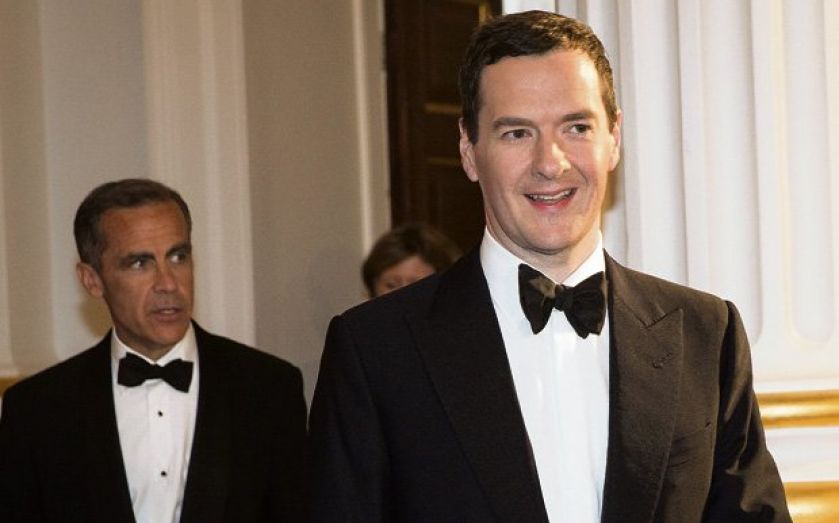| Updated:
Carney must have agreed with Osborne’s interest rate policy to get governor’s post

Tim Wallace takes a look at the evolving relationship between the Treasury and the Bank of England.
Bank of England governor Mark Carney was appointed in November 2012 by George Osborne, in a move which was at the time seen as a masterstroke by the chancellor.
Osborne had shown that he was extraordinarily keen to obtain the services of the Canadian – Carney had ruled himself out of the job in the summer but was persuaded to take it.
The job was advertised as an eight-year-long post, but Carney took it for five as it fitted his family plans better.
The governor’s reputation as a central banker was unimpeachable, as the ex-Goldman Sachs exec was seen as an intellectual heavy weight with serious practical experience.
However, it is also clear the chancellor would not have hired Carney if the governor did not subscribe roughly to a view of the economy similar to Osborne’s.
As a result, when Carney argues rates should be held down until the economy reaches “escape velocity”, and even then rises will only be “gradual and limited,” it can be assumed Osborne backs the policy.
The pair operate more closely than the previous governor, Mervyn King, did with Gordon Brown.
Brown gave the Bank operational independence and largely left the MPC alone. Previously, the chancellor met the governor to set rates.
But the new deal changed with the financial crisis, when the Treasury and Bank collaborated on policies such as quantitative easing. Since then more schemes have been devised between both institutions – the funding for lending scheme, for in – stance, in 2012. Despite that, the MPC fiercely defends its independence and rejects claims any outsider has sway over its interest rate decisions.
Q&A: COULD OSBORNE INFLUENCE CARNEY?
Q If he wanted to, could George Osborne influence interest rates?
A This would be a very difficult task. Mark Carney has got a big say on the monetary policy committee, changing the way the MPC thinks about rates. But even if he was pressured by Osborne – which is very unlikely, given the governor’s very vocal support for MPC independence – he is still only one of nine votes on the committee.
Q How much control does Carney have over the MPC?
A He is a powerful voice, and nobody has yet voted to raise rates against his wishes. Some economists think we will get more clues on any dissenters when the minutes of the latest MPC meeting are published tomorrow. Some members think the economy has less slack than Carney estimates, so some could vote for a hike soon.